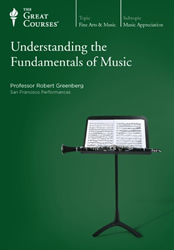
Over the ensuing 27 years, he gained back his virtuoso status. The patient suffered severe retrograde amnesia and complete loss of musical interest and ability.
#FUNDAMENTALS OF MUSICALITY PROFESSIONAL#
Improvement in musical functional may be attributed to an absence of seizures, a reduction in antiepileptic medication, and other psychological factors ( Schulz et al., 2005).Ī more recent case report detailed a professional jazz guitarist who had undergone left temporal lobe surgery (70% resection) for an arteriovenous cerebral malformation. None of the musicians saw a deterioration in musical ability and two patients had noticed an improvement or no change to their musical ability with excellent professional recovery. In this small case series, all patients achieved seizure freedom following surgery having experienced intractable temporal seizures for at least 10 years.

In addition, more objective neuropsychological battery tests were also performed before and after surgery. The questionnaire was designed to obtain the patients subjective assessment of special musical skills like melody processing, musical memory, rhythm, meter, harmony/dissonance, timbre, concentration and endurance, emotionality, and absolute pitch.
#FUNDAMENTALS OF MUSICALITY SERIES#
In a case series of three musicians who underwent temporal lobe surgery (two right-sided, one left-sided), a questionnaire was given before and after surgery. Reports observing impact on musical perception for pitch, timbre, tone, rhythm, and time interval all concluded a risk with right temporal lobectomy including Heschl's gyrus ( Johnsrude et al., 2000 Kester et al., 1991 Liegeois-Chauvel et al., 1998 Milner, 1962 Samson and Zatorre, 1988, 1994 Warrier and Zatorre, 2004 Zatorre, 1985, 1988 Zatorre and Halpern, 1993 Zatorre and Samson, 1991).Įffects on musicality following temporal lobe surgery have been specifically observed in professional musicians where self-awareness of musical ability is likely to be more sensitive. The study findings imply that recognition appears bitemporally represented.

Reports observing effects of surgery on recognition were broadly consistent demonstrating impaired recognition of previously presented tunes following surgery but with right-sided predominance ( Samson and Zatorre, 1991, 1992 Shankweiler, 1966). This inconsistency may relate to the extent of surgical resection and the different methodologies employed by the studies.

In reports observing the effect on emotion, some reports observed a reduced ability to identify scary music following anteriomedial temporal resection ( Gosselin et al., 2011 Khalfa et al., 2008), while another study observed no significant impact ( Dellacherie et al., 2011). The reports involved small numbers of surgical patients, and the methods used for assessing musical processing varied considerably. An overview of available published studies examining the effect of temporal lobe surgery on musical emotion, recognition, and perception was reported in the comprehensive review by Maguire (2012).

Temporal lobe surgery for medically refractory epilepsy and the effects on a person's musicality is an important and often overlooked issue with potentially devastating consequences. Melissa Maguire, in Progress in Brain Research, 2015 2.5.2 Temporal Lobe Surgery


 0 kommentar(er)
0 kommentar(er)
